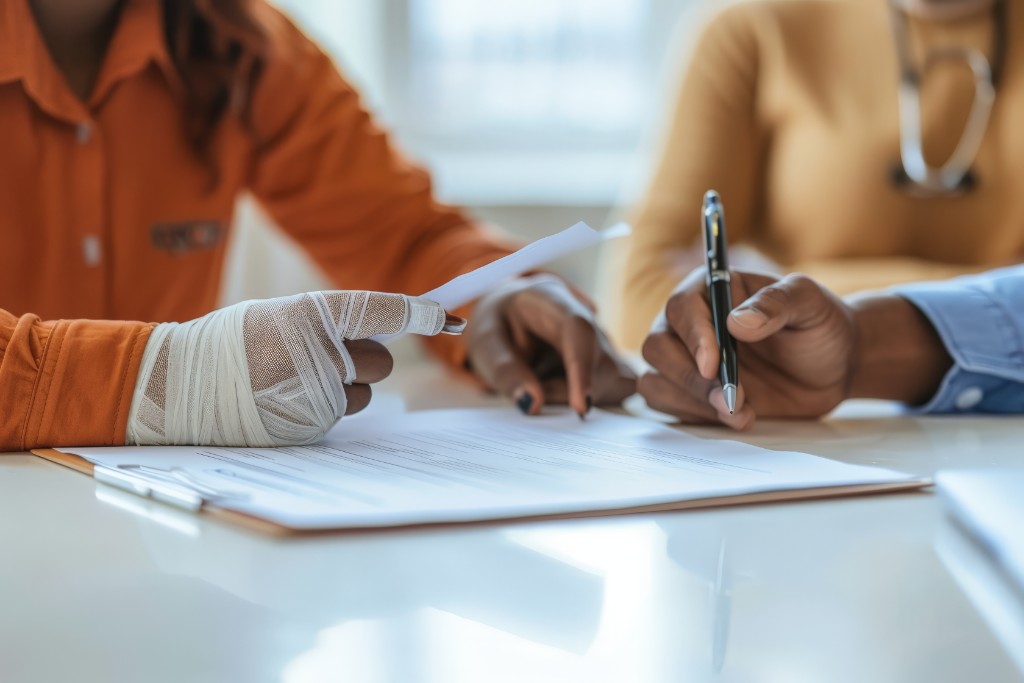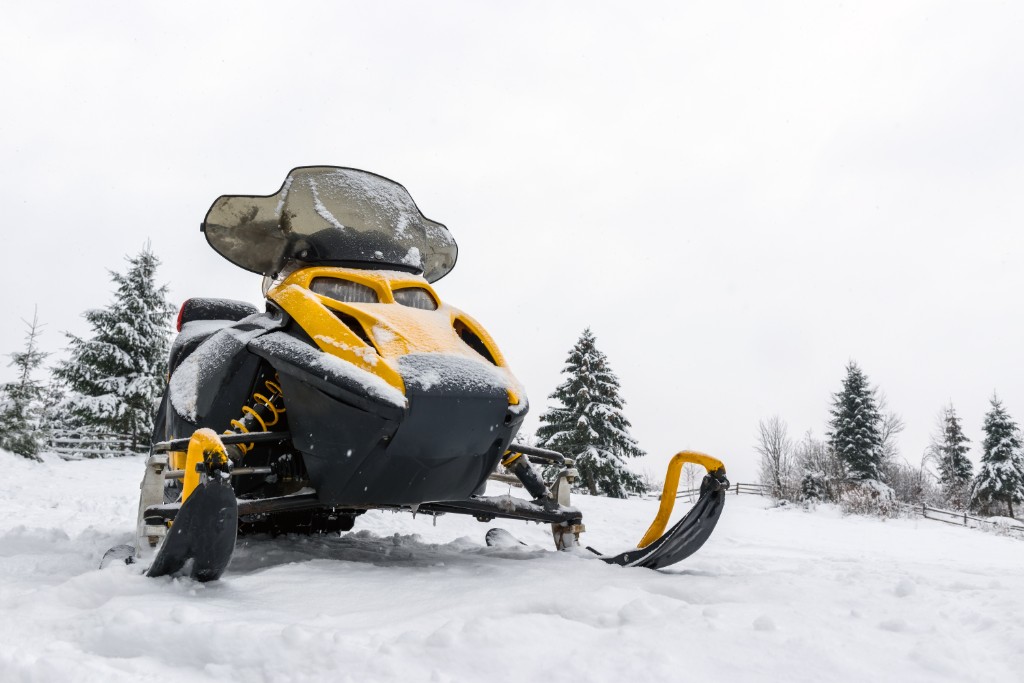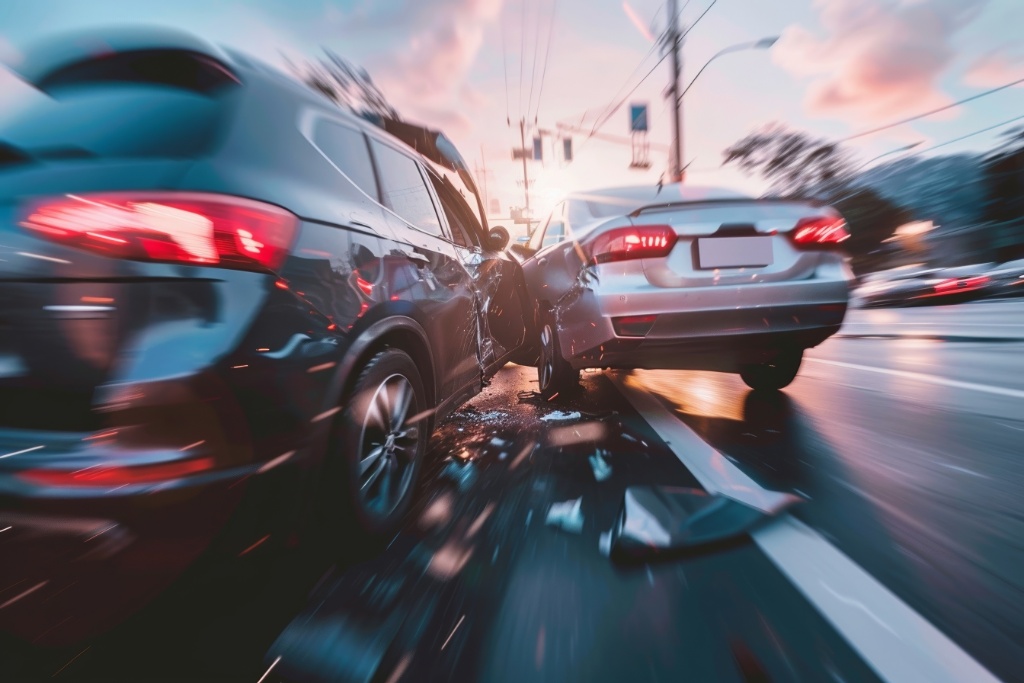January 18, 2022 | snowmobile accident Claims
Safety Checklist for Your Snowmobiling Expedition
Table of Contents
As winter snows settle in and trails open for exploration across Ontario, many people might be planning snowmobiling adventures. An essential means of transportation in some communities, snowmobiling can also offer a fun recreational way to explore the outdoors during the cold months. However, it comes with a set of dangers. An average of 73 Canadians die in a snowmobile-related accident every year.
Some of the most common causes of death in a snowmobile accident are collisions with a stationary object, such as a tree or a post. Between 2013-2019, according to Statistics Canada, 49% of fatalities were connected to the consumption of drugs and/or alcohol; 34% were connected to excessive speeding; and 35% to riding during twilight hours, when visibility was low.
There are, unfortunately, other circumstances that could lead to injury while snowmobiling, including the negligence of other drivers.
You may not be able to prevent others’ negligence, but you can make sure your machine is in good working order and that you have done everything you can to prepare a safe expedition.
1. Do you have your license?
Under Ontario law, you need to have either a valid Ontario driver’s license or a valid motorized-vehicle operator’s license (MSVOL) on your person in order to legally drive a snowmobile. Anyone over the age of 12 can get an MSVOL through the Ontario Federation of Snowmobile Clubs and the Ministry of Transportation. You will need to successfully complete a snowmobile driver-training course in order to receive your license. Note that licensed drivers 12-16 years of age are restricted to maintained recreational trails.
2. Is your snowmobile registered?
Unless you are driving on your own property or in certain exempted areas of Northern Ontario, every snowmobile must be registered with the Ministry of Transportation. If you’re renting, look for a sticker with a registration number on either the cowling or engine cover of your machine. If you’ve purchased a snowmobile, you have six days to file the registration.
3. Is your snowmobile insured?
Just as with automobile insurance, every snowmobile owner must have liability insurance for their snowmobile. When you are going out for your expedition, make sure to have your insurance card with you.
4. Are you wearing a helmet?
Considering the severe impacts that traumatic brain injuries can have on a person’s life, it is very important to make sure your head is protected. The standard recommendation for snowmobilers is to wear a helmet approved for motorcycle use.
5. Are you protecting your eyes and face?
Branches, snow, pebbles whipping from beneath passing vehicles – these are just some of the potential causes of injury to your face and eyes while riding a snowmobile. Wearing a face shield or goggles can help make sure you aren’t blinded by a flying object at a critical moment. It can also be helpful to choose slightly tinted classes to protect your ability to see through the glare of white snow. However, you may want to avoid glasses that are too tinted, as they can make it difficult to see in overcast or twilight conditions.
6. Is your snowmobile in good condition?
Every time you plan to take your machine out on the trails, make sure to conduct a thorough inspection. Some steps to take include:
- Check that the steering mechanism is in good order. When you turn the handlebars to either side, does everything turn smoothly?
- Check that the motor drive belt is in good condition. If you have any doubts, change it or contact your mechanic.
- Check that the emergency switch, taillights, and headlights are in working order.
- Check that the battery solution is at a satisfactory level.
- Make sure the brake levers and throttle move freely.
- Check that the fuel tank is at a satisfactory level and that the spark plugs are in good order.
- Never use matches or a lighter when investigating the fuel tank, and never fill up the tank with the motor running!
7. Do you have warm clothing?
Being a winter sport, it comes as no surprise that snowmobiling can get chilly. Make sure you and everyone going on your expedition has proper clothing to protect them from frostbite, hypothermia, and other possible ailments of the cold.
8. Do you have safety gear?
One hopes to have smooth sailing on a snowmobiling expedition, but it is important to be prepared in the event of an emergency. Here is some safety gear to bring along:
- A functioning GPS or SPOT messenger unit, which can help provide your exact location to emergency personnel
- A strobe light or flares to help show your location
- Extra batteries for your strobe light
- An avalanche beacon, if you are riding in an area at risk of avalanches
- A portable shovel to help you out of the snow if you or your machine becomes stranded
- Ice picks fastened to a cord and threaded through your jacket, if you are travelling near frozen water
- An emergency first aid kit
- Basic maintenance tools for your snowmobile – these are typically included with the purchase of your machine
9. Do you have a clear plan for your expedition?
To help prevent unexpected incidents, plan out where you’ll go in advance. Check the trail conditions and the weather before you embark, and make sure you are familiar with maps of your chosen route. Likewise, decide in advance how long you’re planning your expedition to be. This might influence how much gasoline you prepare for your snowmobile, how you plan meals for yourself and fellow riders, and the very routes you take.
As you’re planning, consider the experience and comfort levels of everyone in your party; the kinds of routes advanced snowmobilers might take could be too dangerous for beginners. Always use the buddy system and stay together for the duration of the journey.
Lastly, make sure you let someone outside your snowmobiling expedition know of your plans. Tell them the details of where you’re going, with whom, and for how long. Make sure you let them know when you intend your expedition to end and, when it does, give them a call to let them know you’re safe! This way, if you or your party are involved in an accident, there is someone on the outside who may be able to help first responders find you.
10. Have you done your final checks?
It’s the day of your expedition! The weather is great, your route is in good order, and you’ve made all your safety preparations. Before you get on your snowmobile and hit the trails, make sure you do these final checks:
- Test the brakes
- Test the track and skis for easy movement
- Test the headlight and taillight
- Test the emergency switch
- Idle your snowmobile for at least 60 seconds, letting the engine warm up.
If You’ve Been Injured, Contact Our Snowmobile Accident Lawyers Today
Even with all the most rigorous safety precautions, you may be affected by the negligent actions of other drivers. If you have been injured in a snowmobile accident because of someone else’s reckless behaviour, you may be entitled to compensation. This may help to cover medical bills, treatment, as well as income you might have lost because of the injuries. Contact us today to book a free initial consultation with our snowmobile accident lawyers and see how we might be able to help you.
Blog Categories
More snowmobile accident Topics
Here’s more information on snowmobile accident related topics that we think you might find helpful.

ATV accident
|
November 10, 2017
Contributory Negligence in Toronto Injury Cases
If you were involved in an accident for which you were partially at fault, it is still possible to recover compensation for your damages. However,…

car accident
|
November 25, 2013
Snowmobile Season is Approaching: Do You Know the Most Common Dangers?
Snowmobiling is a popular activity in Ontario, whether undertaken as a mode of transportation or as a recreational pastime. In fact, the 2010 Ontario Road…

car accident
|
November 13, 2013
Avoiding Wintertime Accidents: 7 Snowmobile Safety Tips
Snowmobiling is a popular activity in Ontario, owing to our abundant snow and trails. In fact, the 2010 Ontario Road Safety Annual Report indicated there…
